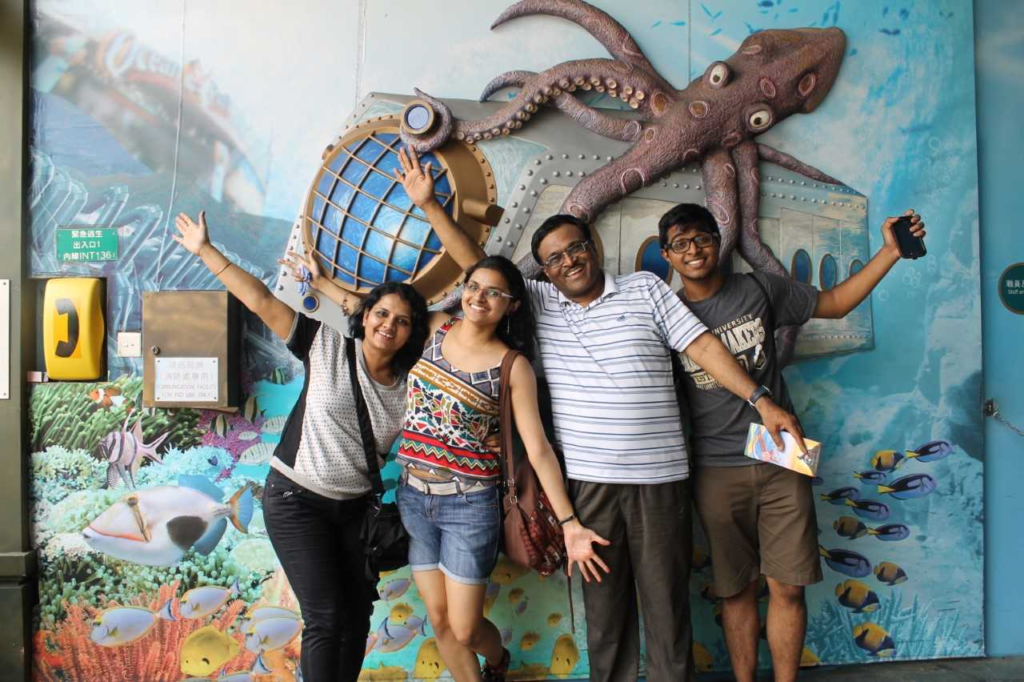Understanding the World from Different Perspectives – The Tale of Priyanka Gupta

SP Jain’s Master of Global Business (MGB) student, Priyanka Gupta, has authored two books on Women Entrepreneurs. Priyanka, a student of Global Logistics & Supply Chain Management, recently published ‘Unravelling the Myth’ and ‘The Women Who Ventured’, two books which have been drawing attention from the Indian and international media alike. We caught up with Priyanka to hear her story.
Tell us a bit about your story. What should our readers know about Priyanka Gupta?
My story begins in Dubai (UAE), a place that I was born and raised at, and to me, was always filled with magic and wonder. Dubai gave me ample opportunity to observe, learn and compete amidst a vast multitude of people embracing different faiths and culture. From a very young age, my parents wanted me and my brother to learn to adapt and enhance our level of maturity to acknowledge different situations and ideologies.
My parents introduced us to the idea of completing our education in India to get ‘better academic stability’. Following this, I completed my Honours in Economics from Miranda House, University of Delhi. I took on numerous opportunities with various companies such as Larsen & Toubro construction, Teach for India, RTI Nation and Aditya Birla Money. I was interviewed on the USA Radio Station by an award-winning Author for my books on ‘Women Entrepreneurs’ published by Indian Institute of Management Bangalore (IIMB).
My journey understanding the world from different perspectives continues in my on-going course of Masters in Global Business from SP Jain School of Global Management and I wish to continue to meet new people and make a correlation with the world they know.
What was your dream job as a kid?
As rightly said – “Life happens to you when you are busy planning other things” and my story is a classic example of this. I believe that things don’t always work according to plan. As a kid, I did not have a well-defined ‘dream job’. I had a passion to learn and grow, which I pursued, and eventually everything fell into place.
Who are your favourite heroines? What about them appeals to you?
In my view, heroine is any woman admired for her courage, outstanding achievements, or noble qualities. Personally, I admire a lady who is not a millionaire but rules millions of hearts. She is an extraordinarily passionate woman with just one philosophy in mind and that is “If a child cannot reach the school, the school must reach the child!” Long back, my grandfather coined a Sanskrit adage “Vidya Dadati Vinayam” which means “Be humble and kind while attaining greater heights” and this best summarises the woman I admire the most.
Rani Patel, a grandmother to a cute little boy, has been successfully running an NGO from scratch for over 10 years now with the aim of educating the underprivileged children. Rani started this journey when she came across a little boy, Rohan, who was caught liable for stealing food. Instead of involving the police or letting the boy go with a warning like most people would’ve, she took him home, provided him with food, and patiently tried to understand what stimulated him to steal. “I am hungry and I want food. Since I don’t have money, this is the only way possible to get food,” Rohan shared. Considering this situation, Rani Patel realised how she could better give back to the society and welcomed Rohan and many such others to learn and study without anything in return, hence the name “Aa- Rohan” which means “Welcome Rohan”. I find her simplicity and wisdom most appealing. She faces humongous challenges every day but continues to learn and grow.
How do you deal with organisational bureaucracy?
My understanding of organisational bureaucracy is very simple – a chain of commands. Every organisation has its own set of values which is used to achieve its vision and mission. On similar lines, I don’t regard bureaucracy as evil. Rather, I would redefine the essence of bureaucracy from a different perspective.
In every organisation, there should be a sense of accountability and it is crucial that the organisation adopts appropriate culture wherein employees are comfortable working in. In my opinion, with large organisations come more complexities; hence, for smooth functioning of these organisations, compartmentalisation and oversight is necessary. The ingredients for organisational bureaucracy involves defining roles and responsibilities, delegation of power, and merit based performance appraisal. If I were a senior manager, I would ensure to meet the above parameters with the highest degree of transparency and utmost collaboration among employees by conducting periodic meetings, celebrating team successes, and providing training for employees to perform cross-functional roles. This formal hierarchical structure and management by rules would allow me to be an effective leader for my team.
Related Posts
-
 In This World of Internationalisation, Will You Survive?
No Comments | Jul 27, 2011
In This World of Internationalisation, Will You Survive?
No Comments | Jul 27, 2011 -
 Breaking corporates shackles to start a wealth management boutique
No Comments | Feb 18, 2015
Breaking corporates shackles to start a wealth management boutique
No Comments | Feb 18, 2015 -
 S P Jain (Global) alumnus Chetan Sodhani shines
No Comments | Apr 2, 2015
S P Jain (Global) alumnus Chetan Sodhani shines
No Comments | Apr 2, 2015 -
 Living costs in Sydney
No Comments | Apr 5, 2015
Living costs in Sydney
No Comments | Apr 5, 2015
